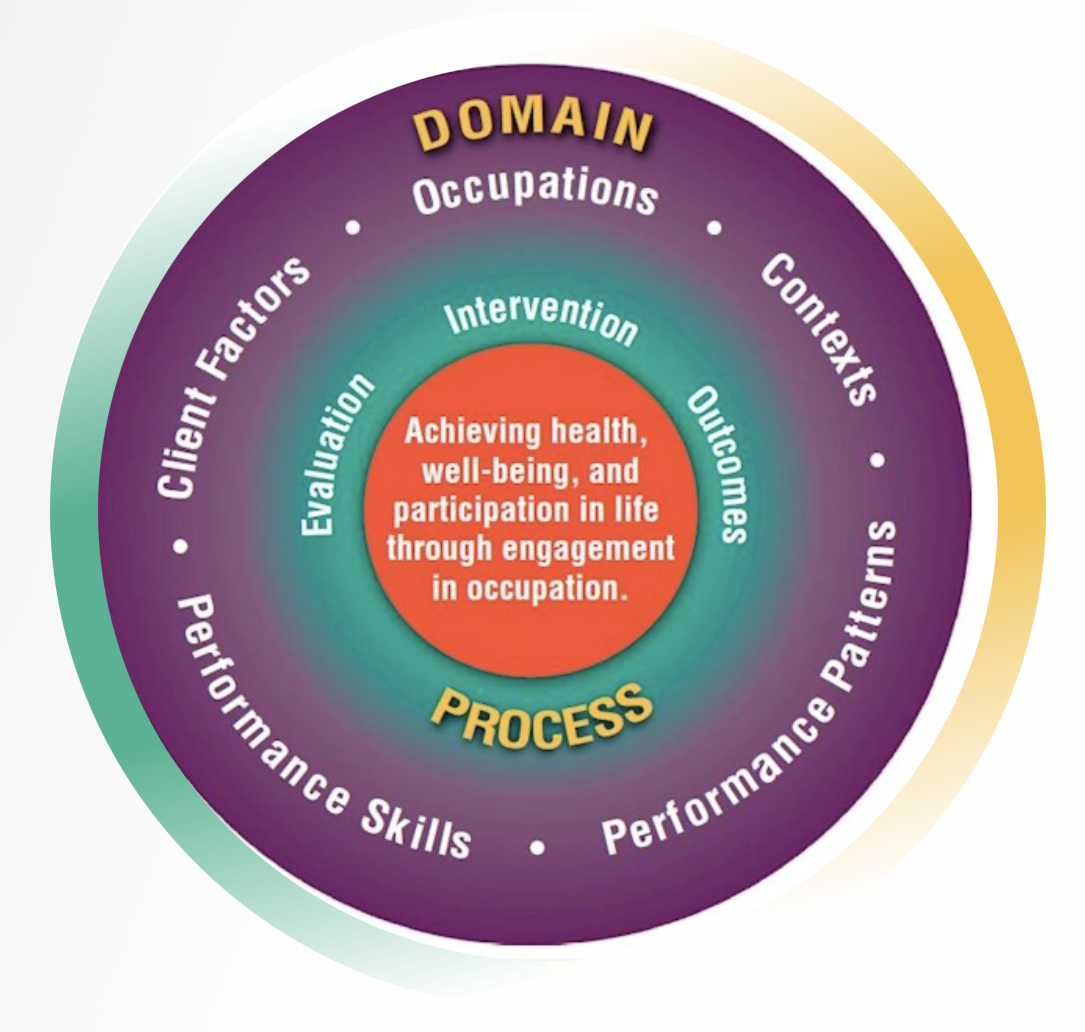Occupational Therapy | The Domain & Process
Image from: American Occupational Therapy Association. (2020). Occupational therapy practice framework: Domain and process (4th ed.). American Journal of Occupational Therapy, 74(Suppl. 2), 7412410010. https://doi.org/10.5014/ajot.2020.74S2001
The domain and process of occupational therapy is the overarching goal of the profession, “achieving health, well-being, and participation in life through engagement in occupation” (AOTA, 2020).
The domain describes what occupational therapy practitioners are “in charge of” and what they make decisions about. The domain is based on the profession’s knowledge of the client.
The domain of occupational therapy includes:
Occupations (e.g., activities of daily living, rest and sleep, work, and education)
Contexts (i.e., environmental and personal factors)
Performance patterns (i.e., habits, routines, roles, and rituals)
Performance skills (i.e., motor skills, process skills, and social interaction skills)
Client factors (i.e., values, beliefs, spirituality, body functions and body structures) (AOTA, 2020).
The process describes the actions when providing services. The process is always client-centered, focuses on function, and used to provide intervention and services to persons, groups, and populations.
The process has three distinct parts: Evaluation, Intervention, and Outcomes.
Important features of the process include:
Service delivery approaches
Practice within various settings
Therapeutic use of self
Clinical and professional reasoning
Occupational and activity analysis (AOTA, 2020).
Disclaimer: Adapt Neuro Flow is not directly affiliated with the American Occupational Therapy Association.
Reference
American Occupational Therapy Association. (2020). Occupational therapy practice framework: Domain and process (4th ed.). American Journal of Occupational Therapy, 74(Suppl. 2), 7412410010. https://doi.org/10.5014/ajot.2020.74S2001
